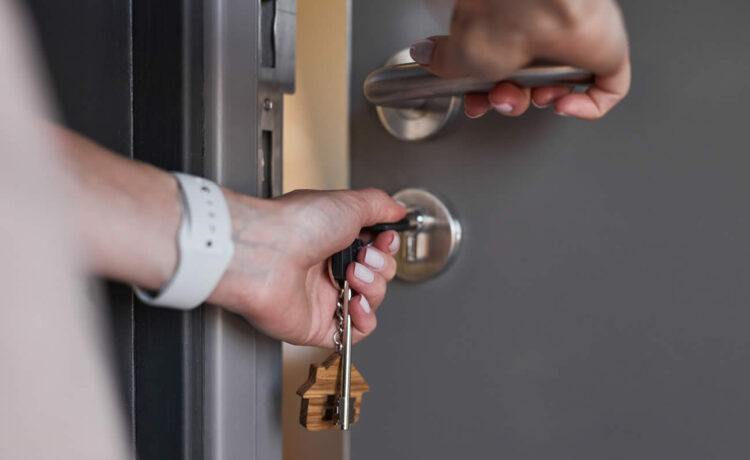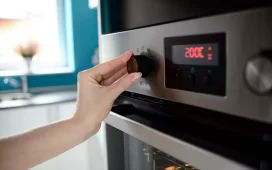There’s not much worse than turning your key and hearing that dreaded snap. Whether it’s your front door, office, or shed, a broken key in the lock can quickly ruin your day. You’re stuck, possibly locked out, and left wondering what to do next.
Here’s a clear step-by-step guide on how to deal with a broken key in a lock, how to avoid making it worse, and when it’s best to bring in a locksmith. You’ll also learn how to lower the chance of it happening again.
Why Do Keys Break in Locks?
Before fixing the problem, it helps to know what usually causes it:
- Weak keys – Keys become weaker with time, particularly if used every day.
- Out-of-position doors – If the lock or door is not properly positioned, turning the key may put it under further stress.
- Cold temperatures – Metal shrinks in cold temperatures, thus more prone to breaking when put under stress.
- Forcing the key – If the lock is stuck or stiff, forcing it can snap the key off in an instant.
Knowing why the break has occurred will prevent such a disaster from occurring again in the future.
What to Do If Your Key Breaks in the Lock
Don’t panic and reach for something handy, but creeping forward puts you in the best position possible to fix it in a hurry without causing further damage.
Breathe and Look at the Lock
Begin by looking to see how far in the key is stuck. If something is sticking out, you can attempt to push it out. If it’s stuck completely inside, a locksmith is likely going to be required.
Also, take a look to see if the door is open or closed, because that will determine just how bad the situation is.
Don’t Force Anything
Forcing the lock with the broken piece or forcing something else in might cause more harm. You might break the pins within or drive the key further in, which will be more—and cost—to repair.
Try to Pull Out the Key (Only If It’s Safe)
If the part of the key that you can see is within reach and you can hold onto it comfortably, you have the option of trying one of the following:
- Needle-nose pliers or tweezers – Hold the key carefully and pull it directly out. Pull no tighter than this so you don’t push it in further.
- Those pesky key extractor things – They are designed for the purpose and can usually be purchased at most hardware stores.
- Stiff wire (paperclip or pin) – If you have the patience and time, you could try to catch it out.
Only if you can obtain a good sight and can spot the key. Otherwise, do not try—it is not worth it—call a locksmith.
Spray With a Lock Lubricant (If Necessary)
If the key is stuck, a tiny bit of graphite or silicone spray will do. These won’t dust like oil-based sprays, so don’t use WD-40 or anything like it. A tiny spritz in the keyhole may be enough to free the key.
Call a Local Locksmith
If the key’s completely inside, won’t move, or you’re unsure what to do, call a professional locksmith. They’ve got the tools and experience to sort it without wrecking the lock.
Trying to fix it yourself can easily turn a small problem into one that needs a whole new lock. A good locksmith can often sort it out quickly on the spot.
What Not to Do
- Don’t attempt to pull the key out with glue or tape—this will break the lock.
- Don’t insert loose objects, screwdrivers or knives into the keyway.
- Don’t leave it—just in case some part of the key remains behind, it will stick the lock permanently.
How to Prevent Your Key from Breaking Again
Although breaks cannot be completely prevented, there are certain steps you can take to prevent the risk:
- Replace broken keys – If your key is bent or cracked, have a new one made prior to it breaking.
- Clean locks – Dry lubricants such as graphite must be reapplied every few months to keep them in working order.
- Don’t force it – If the key won’t turn, the issue’s with the lock—not the key.
- Replace worn-out locks – Worn-out and faulty locks jam. Newer models are more secure and reliable.
When You May Need a Replacement Lock
If the lock is stubborn, or it’s rusted or damaged on the inside, your locksmith can suggest that you replace it. More often than not, this is the most affordable and safest long-term solution—if the break would have been due to internal wear.
How Next Door Locksmith Can Help
We, at Next Door Locksmith, have assisted a number of clients in Glasgow with jammed locks, faulty keys, and lockouts during the night. If you are in need of someone quickly, a new lock installed, or expert guidance, we are always available 24/7.
Our professional locksmiths use non-destructive techniques to extract broken keys and have a full stock of British Standard-approved locks on hand in the rare instance that replacement is required. Require a pro locksmith Glasgow? We’ll sort you no trouble.






